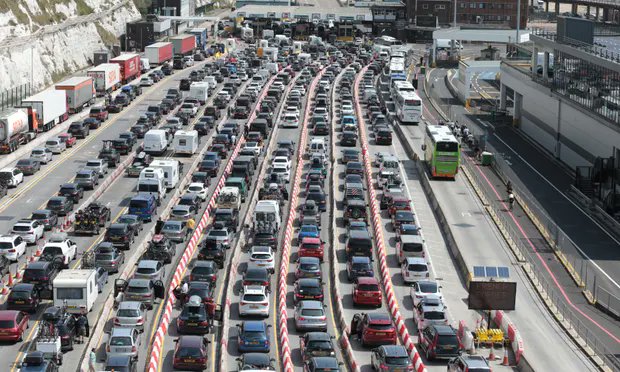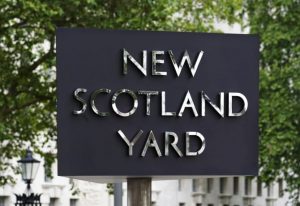Drivers warned more Channel traffic delays expected
People hoping to cross the Channel to France this weekend are being warned it will be very busy again, after three days of queues and delays.
And that pattern could continue with drivers warned by the AA they could face a summer of repeat delays.
Vehicles are flowing freely on Monday after a weekend that saw miles of tailbacks build up in Kent.
Kent Resilience Forum’s Toby Howe said it was a “very vulnerable situation” and took little to cause congestion.
Queues of lorries have begun to build at Dover, although the port said traffic was flowing normally.
Despite the improved traffic flow a major incident declared over the weekend has remained in force.
Ferry operator DFDS told passengers there were “queues of around an hour” for French border checks, while P&O Ferries said queues had picked up.
Over the weekend traffic built up on the roads leading to the Eurotunnel terminal in Folkestone and Port of Dover after the M20 motorway through Kent to the south coast was closed to cars from Maidstone to Folkestone because of Operation Brock, which sees lorries diverted to park on the motorway.
With the motorway shut, car drivers were diverted to smaller roads which then got jammed with miles of tailbacks.
Some people reported sleeping overnight in their cars, while one tired family said the last three miles of their journey took 21 hours.
Mr Howe said things were back to “business as normal” but remained “on a knife edge” with not much needed to create congestion.
He told BBC Radio 4’s Today programme the coming weekend was expected to be the second busiest getaway weekend of the summer holidays and, with traffic crossing the Channel back to pre-pandemic levels and additional checks at the border since the UK left the European Union, it took “very little to cause those tailbacks”.
He said on Friday the Port of Dover had issues with a lack of resources, which was compounded by a crash on the motorway.
“You only need another crash on the road or maybe a train breakdown or a power failure somewhere for it to then become a big problem.”
Mr Howe said there needed to be more infrastructure in place to take traffic off the roads, such as lorry parks.
“We shouldn’t really have to have queues of traffic due to all of this, so we need more infrastructure in place,” he said.
John Keefe, director of public affairs for Getlink – which operates the Eurotunnel between Folkestone and Calais, said the issue over the weekend had been caused by the expected “very heavy traffic of passengers” getting away on holidays alongside an unexpected amount of truck traffic, which would normally have crossed to France earlier but had been delayed by an accident on the motorway.
He said there were several factors that could help ease the situation, including bringing in digital technology to speed up border checks, increasing the resilience of the road network – with two of the UK’s biggest ports served by the same motorway – and improving the Channel tunnel railway network.
The Dover delays led to a war of words between French and UK officials, with both sides blaming the other.
The UK government said French authorities failed to provide enough border staff to check passports at Dover over the weekend, while the French transport minister Clement Beaune highlighted additional border checks brought on by Brexit.
Over the weekend the Port of Dover said it handled almost 142,000 passengers.









